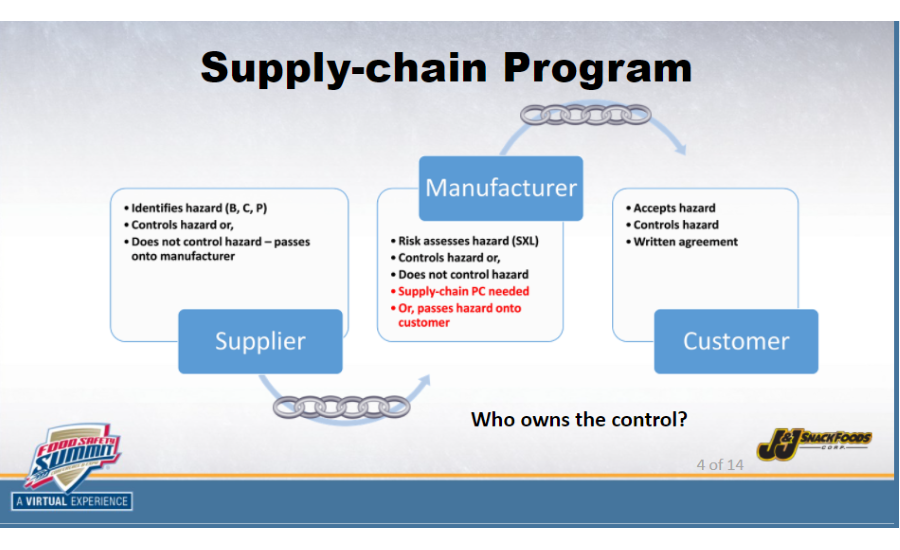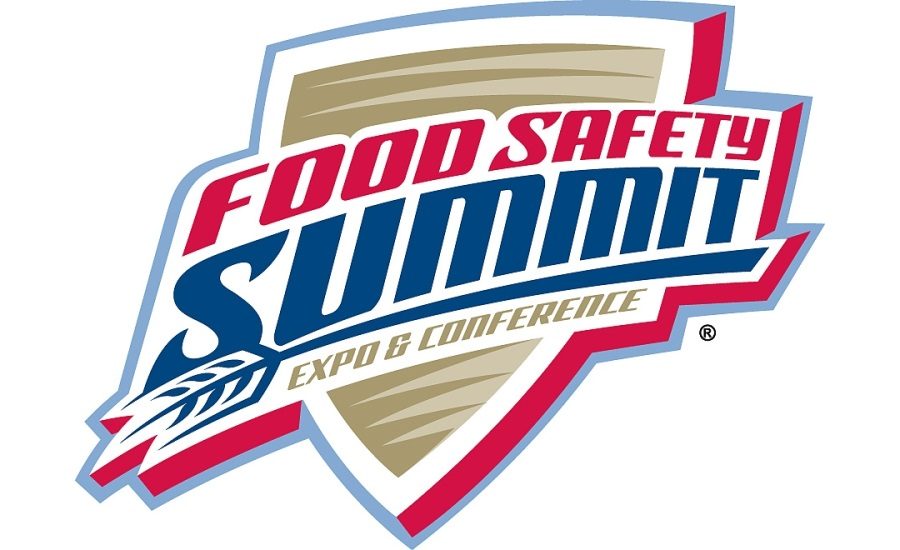Food Safety Summit: What am I Getting Into? Suppliers & Co-Packers Linked to Food Safety


The Food Safety Summit continued on Tuesday, October 20, with a session entitled “What am I Getting Into? Suppliers & Co-Packers Linked to Food Safety.”
Speakers included Deb Kane, MS, senior director of compliance team, J&J Snack Foods, and Eva Rodriguez Szewczyk, Rutgers University – Food Innovation Centers. The moderator was Donna Schaffner, Rutgers.
Kane started off by saying that the food supply chain is only as strong as its weakest link. She gave an example of crackers that have a seasoning mix; if there are any hazards involved with the mix, those then get passed on to the customer. She recommended that “who controls the hazard?” be covered in the company’s food safety plan—whether it’s the supplier, manufacturer, or someone else.
Szewczyk touched on the fact that trusting a supplier or co-packer to manufacture your product can be challenging—for example, will they follow food safety regulations, and also be safe for customers?
She said that common challenges included lack of transparency, and weak food safety programs. Also, companies should be able to expect a well-implemented and effective Food Safety Program from their supplier/co-packer, as well as compliance with regulations, and timely reporting and correcting of food safety issues. They should also be providing evidence that they properly control food safety hazards prior to shipping the product.
She said there are also different types of food safety hazards: biological, chemical, and physical.
Some best practice solutions for creating effective partnerships with your co-packer including setting clear expectations, playing an active role in verifying the food safety of your product, and monitoring and rating your suppliers, based on meeting food safety specifications and their performance, Szewczyk noted.
Click here to watch this event on-demand.
Looking for a reprint of this article?
From high-res PDFs to custom plaques, order your copy today!





